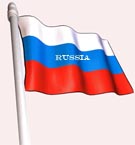Ingushetia's troubles carry echoes of Chechnya
 Kiev - With fanfare and press conferences, the Kremlin on April 16 declared victory in its long-running war in Chechnya against separatism and Islamic fundamentalism.
Kiev - With fanfare and press conferences, the Kremlin on April 16 declared victory in its long-running war in Chechnya against separatism and Islamic fundamentalism.
But it seems that announcement might have come too soon. For, while the fighting might be temporarily under control in Chechnya, members of the Chechen insurgency seem to have diverted their efforts into Ingushetia, a district adjacent to Chechnya and beyond the control of Chechnya's brutal secret police
Operations in Ingushetia and nearby regions have taken the form of an assassination campaign that sharply ramped up during the first three weeks of June.
The most spectacular, a June 22 suicide bombing in Ingushetia's largest city, Nazran, left a bodyguard dead and Yunus-bek Yevkurov, the Moscow-appointed president of Ingushetia, hospitalized and in critical condition.
Gunman ambushed a police major in Makhachkala, the capital of the Caucausian province Dagestan, on June 12. Russia's ORT television attributed the attack to "bandits," a term usually used by Russia's state-controlled media to describe ethnic Chechen or Ingush insurgents fighting Kremlin rule.
Additionally, Ingushetia supreme court justice Aza Gazgireyeva was shot dead June 10 in front of her children as she dropped them off at school. Five others were injured in the attack. The attackers remain at large. The incident came 18 months after her predecessor had been shot dead.
Next door in Dagestan, a sniper fatally injured Adilgerei Magomedtagirov, interior minister of the Caucausian region Dagestan, during a June 5 wedding reception in Makhachkala. As the district's top investigator his job had been, largely, to hunt down insurgents fighting Russian forces.
The Jamaal Shariat, an Ingushetia-based insurgent group that wants a fundamentalist Islamic state that would include Chechnya, Ingushetia, and portions of Dagestan, claimed responsibility.
"The Chechnya war isn't over," said Zurab Maisuradze, a Tbilisi- based security analyst. "It's moved."
To the outsider, of course, it is not so easy to see the differences between Ingushetia, where violence has been on the rise since 2004, and adjacent Chechnya, where Russia's army ended combat operations in 2000. By 2008, it had built a police state headed by Chechnya President Razman Kadyrov.
Both districts are mountainous, destitute, and largely populated by speakers of the Nakh language who are adherents of Sunni Islam.
The two districts suffered equally and severely under the rule of Soviet dictator Josef Stalin. Both saw wars gut their populations after the break-up of the Soviet Union. Unemployment is high in both districts, affecting around 50 per cent of working age men.
Former Chechen freedom fighter Kadyrov is the difference, analysts agreed.
Installed in 2007 as Chechnya's effective dictator, Kadyrov has, according to independent observers, implemented brutal police state rule on Chechnya. Amnesty International has accused the Kadyrov regime of murdering hundreds of its opponents, and kidnapping and torturing thousands more - all part of a Moscow-approved campaign to stamp out Chechen resistance.
Tens of thousands of Chechen refugees now live in Ingushetia as displaced persons, according to UN estimates. As many as one quarter of Ingushetia's registered population of 450,000 is ethnic Chechen, not Ingush, making the ethnic Chechens a powerful and often well- armed player in poorly-policed Ingushetia, area experts said.
"In Ingushetia you have a mixed population, meaning there is no way to establish a single head man, like in Chechnya. And both the Ingush and Chechen have a warrior culture," explained Ruslan Marchenko, a Kiev-based security analyst. "There is no rule of law, so the only security is in the clan - and that means violence against whatever clan controls the government."
The Kremlin is worried about rising violence in Ingushetia and pleased with Kadyrov's iron-fisted rule in Chechnya, according to regional experts. Thus, it has hit on a solution: use Kadyrov's tactics elsewhere.
Raids by Kadyrovtsi, a local term describing ethnic Chechens hired by Kadyrov's government to fight on the Russian side, first started spilling into Ingushetia in the mid 2000s. A telling incident came in 2006, when hundreds of Kadyrovtsi police drove into Ingushetia from Chechnya, shooting up Ingush border police attempting to prevent it.
An ethnic Ingush, Akhmed Yevloyev, is thought by Russian security experts to be the current leader of Ingush Jamaat, the Caucasus region's anti-Russian resistance. The guerilla group calling for the creation of a fundamentalist Islamic republic including Ingushetia and Chechnya.
Jamaat propaganda names Kadyrov's ethnic Chechen hit squads, along with the Russian army, as the main enemies of the jihad.
Kadyrov, in June 23 television remarks, singled out Yevloyev as the probable brains behind Ingushetia's latest wave of killings and attempted murders. He vowed his paramilitary police would track down those responsible.
"The international terrorists that did this, we will destroy them," Kadyrov said after meeting with Russian President Dmitry Medvedev. "Our revenge will be terrible."
Hours later, in the tiny Ingushetian village of Dattykh, a police officer was injured in a bomb blast. He survived, but a day later police were still searching for suspects. (dpa)